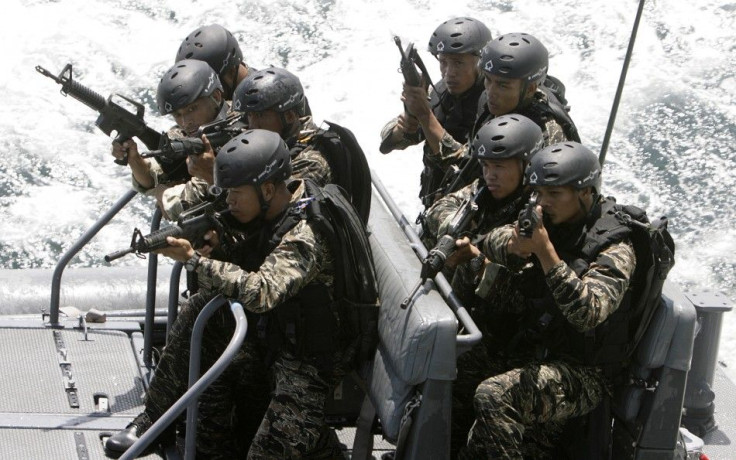South China Sea: China Raps U.S. on Garrison Criticism

China on Saturday criticized the U.S. for accusing Beijing of escalating tensions in the South China Sea by setting up a new military garrison on a disputed island in the waters.
Responding to a press statement released Friday by the U.S. Department of State, Chinese Foreign Ministry voiced Beijing's "strong dissatisfaction and opposition" over Washington's stance on the South China Sea dispute and summoned the U.S. Embassy's Deputy Chief of Mission Robert Wang to make "serious representations" about the issue.
Washington "completely ignored the facts, deliberately confounded right and wrong, and sent a seriously wrong signal, which is not conducive to the efforts safeguarding the peace and stability of the South China Sea and the Asia Pacific region," Chinese foreign ministry spokesperson Qin Gang was quoted as saying by Xinhua.
"China expresses its strong dissatisfaction and resolute opposition, urges the U.S. side to immediately to mend the error of its ways, earnestly respect China's sovereignty and territorial integrity and do more to genuinely benefit stability and prosperity in the Asia Pacific," Qin said.
China lays claim to almost the entire South China Sea, including what is recognized by the U.N. as the exclusive economic zone of other neighbors, the Philippines, Vietnam, Taiwan and Brunei.
On July 23, China approved a military command to be based in Sansha City on Woody Island in the Paracels. The city was established June 21 in an area under the Chinese jurisdiction that is also claimed by Vietnam. The garrison was approved as 1,100 Chinese residents elected 45 legislators to the new city's congress. The troops would be ''responsible for managing the city's national defense mobilization, military reserves and carrying out military operations," reported Xinhua.
Washington said Friday it was monitoring the sea dispute closely, adding that China's establishment of a military garrison runs "counter to collaborative diplomatic efforts to resolve differences and risk further escalating tensions in the region."
"Why does the U.S. turn a blind eye to the facts that certain countries opened a number of oil and gas blocks, and issues domestic laws illegally appropriating Chinese islands and waters?" Qin asked.
"Why does the U.S. avoid talking about the threats of military vessels to Chinese fisherman by certain countries and their unjustified claims of sovereignty rights over Chinese islands? And why do they choose to abruptly express concerns on and fiddle with the issue at a moment when regional countries are enhancing communication and dialogue and trying to solve the disputes and calm the situation?" Qin asked, according to the report.
"The selective blindness and expression of concerns of the U.S. side run against the attitude of 'no position' and 'not to intervene' that they have claimed to hold on the South China Sea issue, and is not conducive to the unity, cooperation, peace and stability in the region," Qin said.
He said it was "worrisome that certain countries do not respect and abide by the DOC" (Declaration on the Conduct of Parties in the South China Sea), signed in 2002 by China and the Association of Southeast Asian Nations (ASEAN) which states that states should resort to peaceful means to resolve disputes and not undertake moves that may escalate tensions.
Qin said China was ready to work with ASEAN nations to promote the development of the bilateral strategic partnership, the report said.
© Copyright IBTimes 2024. All rights reserved.






















